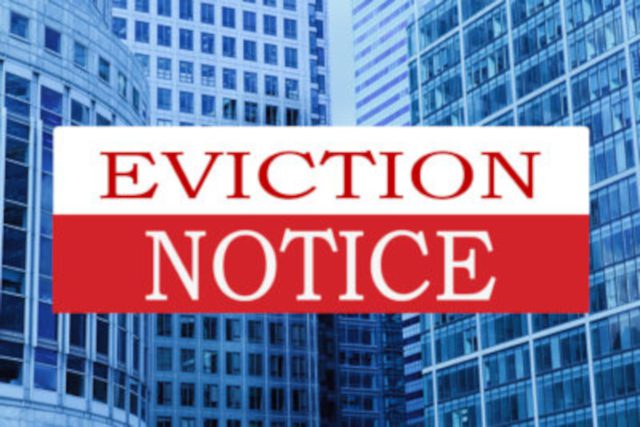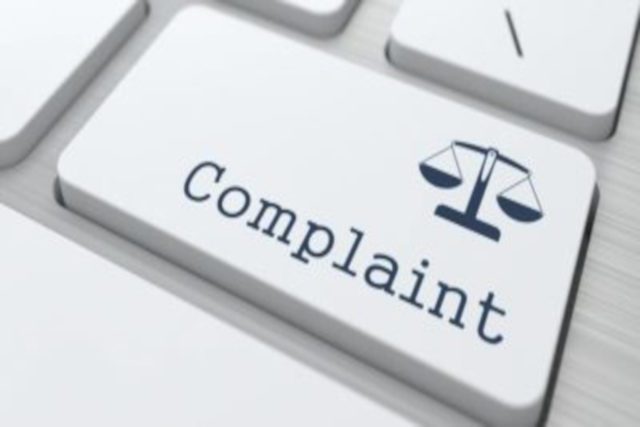What are commercial evictions?
Commercial evictions refer to the legal process of removing a tenant from a commercial property for non-payment of rent or other lease violations. Commercial evictions are typically initiated by the landlord, who files a lawsuit in court to seek an eviction order after providing notice of eviction to the tenant. Commercial evictions are governed by Chapter 83 of the Florida statutes.
Need help reference with commercial landlord/tenant leasing? Schedule your consultation today with a top commercial landlord/tenant attorney.
What measures must a landlord take to fully comply with commercial eviction laws?
To fully comply with commercial eviction laws, Florida landlords must:
- Provide proper notice to the tenant: Before filing an eviction lawsuit, the landlord must provide the tenant with written notice of the alleged breach of the lease agreement and a reasonable opportunity to cure the issue. Depending on the reason for eviction, the required notice ranges from 3 days to 7 days.
- Follow the proper legal procedure: Landlords must follow the legal procedures for commercial eviction in Florida. This includes filing the appropriate paperwork with the court, serving the tenant with the eviction notice, and attending all scheduled court hearings.
- Avoid self-help measures: Landlords are prohibited from using self-help measures to evict commercial tenants, such as changing the locks or turning off utilities. Instead, landlords must rely on the legal process to evict tenants.
What are relevant laws related to commercial eviction in Florida?
Most Florida laws related to commercial eviction come from the Florida statutes. Some relevant statutes include:
- Stat. § 83.56 outlines the notice requirement that the landlord must provide the tenant before the tenant can be evicted for nonpayment of rent or for not maintaining the residence properly.
- Stat. § 83.21 outlines the process for filing a complaint stating the facts which authorize the removal of the tenant.
- Stat. § 83.202 outlines situations that could be interpreted as a landlord waiving the right to proceed with an eviction claim against the tenant.
- Stat. § 83.231 details how the landlord can recover from a judgment.
What are common disputes regarding commercial eviction that lead to litigation?
The following disputes are among the most common in actions regarding commercial eviction in commercial landlord/tenant leasing matters:
- Non-payment of Rent: This is the most common reason for commercial evictions. If the tenant fails to pay rent, the landlord may file an eviction lawsuit to recover the rent owed.
- Lease Violations: If the tenant breaches the terms of the lease agreement, such as subletting the property without permission or engaging in illegal activities, the landlord may file an eviction lawsuit.
- Holdover Tenancy: If the tenant remains on the property after the lease term expires, the landlord may file an eviction lawsuit to remove the tenant.
- Improper Notice: If the landlord fails to provide proper notice before filing an eviction lawsuit, the tenant may challenge the eviction on procedural grounds.
- Retaliation: If the landlord files an eviction lawsuit in retaliation for the tenant exercising their legal rights, such as reporting code violations or complaining about the condition of the property, the tenant may have a defense against the eviction
- Habitability: If the property is not maintained in a habitable condition, the tenant may have a defense against the eviction.
When a set of facts is appropriate to meet the requirements of commercial eviction, there are many paths a claimant may take. We are value-based attorneys at Jimerson Birr, which means we look at each action with our clients from the point of view of costs and benefits while reducing liability. Then, based on our client’s objectives, we chart a path to seek appropriate remedies.
To determine whether a unique situation may necessitate litigation, please contact our office to set up your initial consultation.
What must be proven to successfully file a lawsuit regarding commercial eviction, and what are common legal defenses to those claims?
Plaintiffs must satisfy the following requirements:
- A lease agreement exists between the landlord and tenant;
- The tenant’s breach of the lease agreement. This could include non-payment of rent, failure to maintain the property, engaging in illegal activities on the property, or violating other lease agreement terms;
- The landlord gave the tenant proper notice of the breach and a reasonable opportunity to cure the issue;
- The tenant failed to cure the issue or vacate the property within the specified period; and
- The landlord has the legal right to evict the tenant, usually established by showing that the lease agreement has expired or obtaining a court order.
Some defenses to these claims that the tenant might allege include:
- Failure to Comply with Notice Requirements: If the landlord did not provide proper notice before filing an eviction lawsuit, the tenant may challenge the eviction on procedural grounds.
- Landlord’s Breach of Lease: If the landlord has breached the lease agreement by failing to maintain the property or providing habitable conditions, the tenant may have a defense against eviction.
- Retaliation: If the landlord is retaliating against the tenant for exercising their legal rights, such as reporting code violations or complaining about the property’s condition, the tenant may have a defense against the eviction.
- Payment of Rent: If the tenant has paid all rent owed, including any late fees or penalties, the tenant may have a defense against eviction for non-payment of rent.
To see what actions or defenses may be available for your unique situation, please contact our office to set up your initial consultation.
Frequently Asked Questions
What is the difference between commercial and residential eviction in Florida?
A commercial eviction involves the eviction of a tenant from a commercial property, such as a retail store, office space, or warehouse. A residential eviction consists of the eviction of a tenant from a residential property, such as an apartment or house. The legal procedures and requirements for commercial evictions differ from those for residential evictions.
How long does the commercial eviction process take in Florida?
The length of the commercial eviction process in Florida can vary depending on the case’s specific circumstances. Typically, the process can take anywhere from several weeks to several months.
Can a commercial landlord change the locks or shut off utilities to evict a tenant in Florida?
No, a commercial landlord cannot change the locks or shut off utilities to evict a tenant in Florida. Landlords must follow the proper legal procedures for commercial eviction, which involves filing the appropriate paperwork with the court and attending all scheduled court hearings.
Can a commercial tenant challenge an eviction in Florida?
Yes, a commercial tenant can challenge an eviction in Florida by asserting a legal defense, such as failure to comply with notice requirements, landlord’s breach of lease, or discrimination.
Have more questions about a commercial eviction-related situation?
Crucially, this overview of commercial eviction does not begin to cover all the laws implicated by this issue or the factors that may compel the application of such laws. Every case is unique, and the laws can produce different outcomes depending on the individual circumstances.
Jimerson Birr attorneys guide our clients to help make informed decisions while ensuring their rights are respected and protected. Our lawyers are highly trained and experienced in the nuances of the law, so they can accurately interpret statutes and case law and holistically prepare individuals or companies for their legal endeavors. Through this intense personal investment and advocacy, our lawyers will help resolve the issue’s complicated legal problems efficiently and effectively.
Having a Jimerson Birr attorney on your side means securing a team of seasoned, multi-dimensional, cross-functional legal professionals. Whether it is a transaction, an operational issue, a regulatory challenge, or a contested legal predicament that may require court intervention, we remain a tireless advocate every step of the way. Being a value-added law firm means putting the client at the forefront of everything we do. We use our experience to help our clients navigate even the most complex problems and come out the other side triumphant.
If you want to understand your case, the merits of your claim or defense, potential monetary awards, or the amount of exposure you face, you should speak with a qualified Jimerson Birr lawyer. Our experienced team of attorneys is here to help. Call Jimerson Birr at (904) 389-0050 or use the contact form to set up a consultation.
Here are some blogs written by JB attorneys that provide more information about commercial eviction:
- Commercial Evictions in Florida: What No Landlord Wants to Go Through, but What Every Landlord Needs to Know (jimersonfirm.com)
- Commercial Evictions in Florida: What No Landlord Wants to Go Through, but What Every Landlord Needs to Know, Part 2: Filing the Complaint (jimersonfirm.com)
- Commercial Evictions in Florida: What No Landlord Wants to Go Through, but What Every Landlord Needs to Know, Part 3: The Complaint & Available Damages (jimersonfirm.com)
- Commercial Evictions in Florida: What No Landlord Wants to Go Through, but What Every Landlord Needs to Know, Part 4: Tenant’s Abandoned Property (jimersonfirm.com)
- Avoid Unlawful Commercial Evictions When Retaking Possession of Leased Property (jimersonfirm.com)

We live by our 7 Superior Service Commitments
- Conferring Client-Defined Value
- Efficient and Cost-Effective
- Accessibility
- Delivering an Experience While Delivering Results
- Meaningful and Enduring Partnership
- Exceptional Communication Based Upon Listening
- Accountability to Goals











